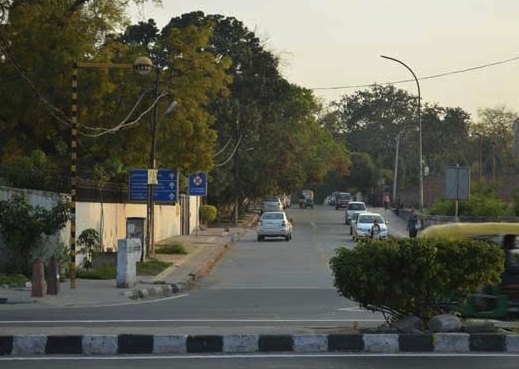A Winter's Morning in Timarpur
Debjani Chatterjee
The black and white cat snoozes in the play of light and shade
on the carports tin roof, under the crumbling mango tree;
tail twitching, it dreams of plump pigeon and tender blue tit.
The scent of a hilsa fish curry floats from the kitchen window;
infiltrates its dream and teases it awake till it yawns and blinks.
A family of sparrows hop in the pomegranate tree:
twittering delight at the young green of its leaves,
playing among the orange of its buds.
Frenzied bees weave among white lemon flowers
and crimson frangipani fragrance the air.
High on a branch of the drumstick tree a tailor-birds nest swings
in the November breeze, fresh with a hint of henna coolness.
The coral-stemmed white shefali flowers make alpona patterns
as they fall on the dew-damp grass.
The hibiscus still droops in prayer
to the early morning sun, its double petals
luscious red like much-kissed bridal lips.
A squirrel mother and child stir in their telephone-box nest
and milkmen balance heavy canisters on bicycle bars.
The roadside chaiwalla lights his charcoal fire biri
and the newsboy flings, with practised ease,
a rolled Hindustan Times to the third floor verandah.
Trucks and buses piled with raw produce and day labour
thunder imperially down the Grand Trunk Road
from the conquered pastures of Punjab and Haryana.
The black and white cat shadow boxes a Tiger Swallowtail
as a sleepy corner of Old Delhi wakes and stretches.
Notes by Author:
alpona: a Bengali word for patterns drawn on the floor to welcome guests.
chaiwalla: someone who sells tea.
biri: a cheap Indian cigarette.
Read some other Poetry Atlas poems about Delhi.
This poem comes from the collection of poetry, Namaskar, by Debjani Chatterjee.
Main Location:
Timarpur, New Delhi, Delhi, India
Other locations:

Street scene in the Timarpur area of New Delhi, India